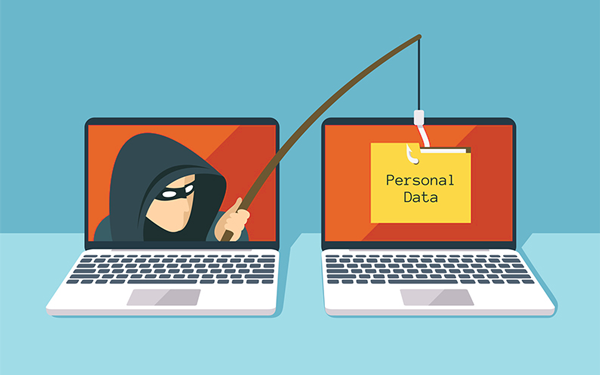4 Ways to Protect Your Business From Email Phishing no comments

Phishing is the process of posing as another person or as a company to deceive people into giving personal or confidential information away, and criminals have been known to use emails as a way to reach their goals. Knowing about the threat is not always enough when your task is to keep yourself and your business safe, and the attack can occur at any time.
An employee will be checking their email as they would on any other day. Suddenly, the employee spots an email from the bank that asks the user to log in to the account to confirm a recent transaction. But the email was not from the bank, and the user’s information is now in the hands of an identity thief. If you don’t want to encounter this situation, then the following 4 tips will help.
1. Don’t Share Sensitive Information Through Email
In a common phishing attack, a criminal will pretend to be someone whom you trust to steal sensitive data. The email could appear as though it had been sent by a friend, boss or business contact, and you might be asked for your account information or pin number. But no credible business will request sensitive data in an email, so the request should be your first red flag.
Rather than sending personal details in an email, pick up your phone and call the company or the individual who requested the information. Although this step might seem a little time-consuming, it can save you from a lot of trouble.
2. Manually Navigate to Web Addresses
Long before sending you a fraudulent email, experienced criminals will put in the effort to clone the website of a bank or business. They will then send an email posing as your bank or another trusted entity, and you will be encouraged to click a link that will take you to a malicious website.
Although the content, logo and other details might appear identical to the real thing, any information that you send will be exposed. Avoiding this type of attack is not difficult. Simply open a separate web browser and manually navigate to the website that you intend to visit.
3. Look for Spelling Errors
Keep in mind that phishing attacks can come from any location on the planet, so a lot of fake emails are sent by those who don’t speak English as their first language. When someone from another country sends a fraudulent email, the message will often contain obvious spelling errors. Some people dismiss the spelling errors that they find, but they will likely have their personal information stolen as a result. Customer service agents can make mistakes, but using caution is the best way to avoid becoming a victim.
Also, even criminals who speak English fluently can make mistakes when typing an email. If you notice anything that seems odd, call the company or person from whom the email appears to originate and ask for verification. If the email is not legitimate, report it as spam and block the domain.
4. Don’t Trust Attachments
Downloading and running email attachments is a good way to get a virus or to have other malicious software installed on your device. In the past, hackers would use screen savers and free games to infect their victims, but hackers can even use Word and Excel documents to inflict damage. After a computer is infected, the malicious code will sometimes automatically email itself to everyone in the victim’s address book. If you want to avoid this problem, never download an attachment that you were not expecting.
Having your identity stolen can destroy your credit score, and some people are forced to wait years before they can reverse the damage. Nobody should overlook the threat of phishing, and you can never eliminate the risk entirely. But you can significantly reduce the odds of having your personal or business information exposed by keeping safety at the front of your mind. Protecting yourself and your business will require some time and effort, but safeguarding your information is always easier than trying to pick up the pieces after an incident occurs. Those who focus on security when communicating online will follow these tips, but they will also use common sense to detect the signs of suspicious activity.
Follow Us :Share :



